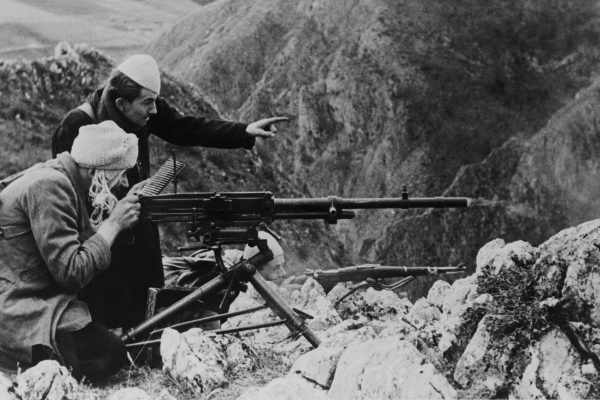Stringent practices have resulted in Muslims being treated as second-class citizens in contemporary society.
Stringent practices have resulted in Muslims being treated as second-class citizens in contemporary society.
Since 9/11, Muslims around the world have fallen victim to a vicious cycle of resentment, alienation and degradation. Laws have changed and new policies have been implemented domestically and internationally, with the remnants of the ‘war on terror’ continuing to have a pernicious effect on the average Muslim.
We could say that 9/11 and 7/7 were the catalysts, after which Tony Blair infamously said: “the rules of the game are changing”. Blair introduced a set of measures that demonised Muslims. Such stringent practices have resulted in Muslims being treated as second-class citizens in contemporary society. Their civil liberties have been trampled on and political and religious freedoms subjected to scrutiny.
The examples of Muslims being treated as such are countless. OFSTED’s recent discriminatory recommendation to question young girls in Hijab because it “could be interpreted as sexualisation” has been met with controversy, despite the fact that it is perfectly fine to teach sex and relationships to children as young as five. The Burka ban and Muslim women’s attire in general is always being politicised and has become a controversial topic that may well serve to score brownie points for its critics. The tragic failure that is the Prevent strategy has stifled debate and free speech in Universities, with a Home office report from 2015/16 finding that 7,631 young people were referred to Prevent, but significant limitations indicate why it is just not effective. Displaying one’s religious affiliation has proved to be toxic over the recent years where incidents of Islamophobia, particularly against Muslim women and mosques, have been prolific.
It is apparent from this that Muslims have been used as pawns in domestic and foreign policies and that there will always be someone, somewhere who may commit a crime in the name of Islam and ordinary Muslims will pay the price. If this cycle is not broken, then British Muslims in the public discourse will always feel under siege, particularly when a terror attack occurs. The broader dangers Europe faces comes from the government, politicians and the media, particularly in the wake of the 2015 migrant crisis. The widespread fear in Europe of migrants seeking asylum from war-torn countries like Syria, Afghanistan and elsewhere in the Middle East and Africa incensed the xenophobes and bigots. The seriousness of this fear can be seen in Brexit, and over in the States, in the election of Donald Trump. Trump’s Muslim ban badly affected the Muslim immigrant community in the United States. This type of rhetoric and anti- Muslim sentiment has been deeply seeded in the country since 9/11, but Trump has now made it a movement – one that turns the ‘Islam hates us’ theory into actual policy.
Muslims are also being blamed for just not trying hard enough to be part of a broader western society and integrate, yet if integration is about maintaining one’s identity and beliefs while being able to celebrate differences and work with others in civic society, is this not what British Muslims have been doing? If some Muslims are falling behind, it is not a result of the lack of integration but a result of the structural barriers they face in society. For example, a recent report from the Social Mobility Commission found that young British Muslims face social mobility barriers in education and employment, due to experiencing Islamophobia, discrimination and racism. Despite girls from predominantly Pakistani and Bangladeshi backgrounds succeeding in education and going on to university more than any other groups, they face the greatest economic disadvantage of any faith group in UK society.
To justify this so-called ‘integration problem’ as Muslim norms and traditions being at odds with aspects of British culture is ludicrous, because had that been the case, anyone who adheres to a religious ideology could fall under that vague category. The question which then stands is what exactly is being asked of Muslims?
It is unhelpful that British politicians claim that ‘Muslims should do more to fight extremism’ despite the fact that a vast majority do not condone or uphold extremist views. It must be said that our leaders, the media and opponents of Islam often dismiss and undermine the work of Muslim organisations by ignoring their contribution and commitment to academia, education, sports, charity work, healthcare, politics and interfaith work as well as countering terrorism over the recent years.
Muslim shouldn’t feel guilt-tripped into showcasing their humanity or commitment to British values whether that is through being compared to being as ‘British as a cup of tea‘ or wearing a “Poppy Hijab“. The Muslim narrative should be shaped by British Muslims and that can only be done by hearing and appreciating what they have to say. Let’s make 2018 a year where Muslims define themselves, and not be defined by the media, politicians or far-right groups.
As the spoken word poet, Suhaiymah Manzoor-Khan said in her viral spoken word poem,
“If you need me to prove my humanity, I’m not the one who’s not human.”
Muslims can’t be what you want them to be. Like her, I won’t apologise for being Muslim anymore, and neither should you.
by Amani Sharmin Akhtar





